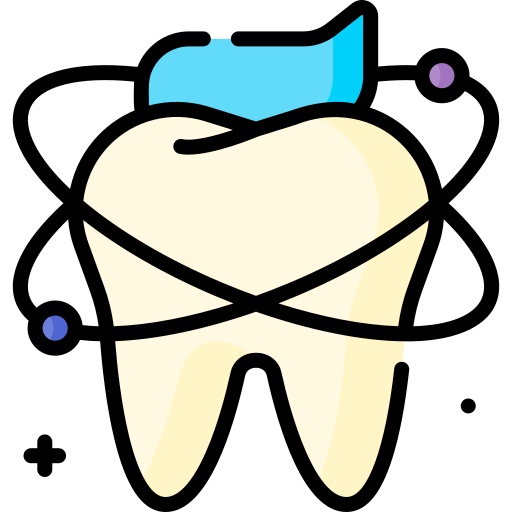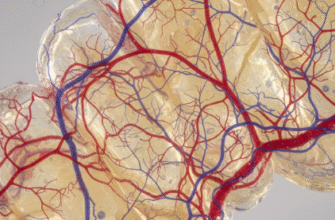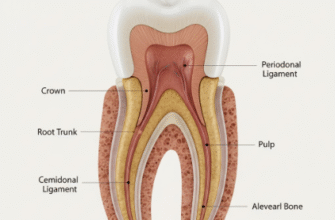Losing a tooth, whether through an unexpected accident, decay, or other reasons, can feel like a significant event. For many, the immediate concern might be the gap in their smile, especially if it is a visible front tooth. This aesthetic aspect is undeniably important, influencing how we feel about ourselves and how we interact with others. A full set of teeth is often associated with youth, health, and vitality. When a tooth is missing, it can make individuals self-conscious, perhaps leading them to smile less or cover their mouth when they speak or laugh. This change in demeanor, however subtle, can affect personal and professional relationships. But the impact of a missing tooth extends far beyond just the cosmetic. It sets off a chain reaction of changes within your mouth and can even affect your overall well-being.
Beyond the Smile: Functional Consequences
Think about how your teeth work together as a team. Each tooth has a specific role in biting and chewing food. When one member of this team is missing, the others have to compensate. This can lead to difficulties in chewing, particularly with certain types of food. You might find yourself avoiding harder, crunchier, or chewier foods that are essential for a balanced diet. Over time, this can lead to nutritional deficiencies if you are consistently missing out on important food groups. Inefficient chewing also means that food is not broken down properly before it reaches your stomach, potentially leading to digestive discomfort.
Speech can also be affected. Your teeth play a crucial role in forming certain sounds. The tongue and lips interact with the teeth to create the precise airflow needed for clear articulation. Missing teeth, especially those at the front, can lead to a lisp or difficulty pronouncing certain words, which can be frustrating and further impact confidence in social situations.
The Unseen Changes: Shifting Teeth and Jawbone Integrity
One of the most significant, yet often unseen, consequences of not replacing a missing tooth is the movement of adjacent teeth. Nature abhors a vacuum, and your mouth is no exception. The teeth on either side of the gap will naturally begin to tilt or drift into the empty space. Teeth from the opposing jaw may also over-erupt, growing longer into the gap because they no longer have a partner to bite against. This shifting can lead to a cascade of problems:
- Misalignment: Your bite can become uneven, leading to problems with how your teeth fit together.
- Difficulty Cleaning: Tilted or crowded teeth are harder to clean effectively, increasing the risk of plaque buildup, cavities, and gum disease in the remaining teeth.
- Increased Stress: The remaining teeth may experience increased stress and wear as they take on more of the chewing load.
Perhaps the most critical long-term consequence is jawbone deterioration. The roots of your teeth stimulate the jawbone, much like exercise stimulates muscles, keeping it strong and dense. When a tooth is lost, that stimulation disappears. The body, sensing the bone is no longer needed to support a tooth in that area, begins to resorb it. This bone loss can lead to a sunken appearance in the face over time, particularly if multiple teeth are missing. It can make the face look older and can also complicate future tooth replacement options if a significant amount of bone is lost.
Ignoring a missing tooth can initiate a domino effect of dental issues. The surrounding teeth may shift, your bite can change, and crucial jawbone support may begin to diminish. Addressing a missing tooth promptly is key to preventing these more complex problems. This proactive step can safeguard your overall oral health for years to come.
The Wider Impact on Your Oral Environment
A missing tooth does not just affect its immediate neighbors; it can alter the entire ecosystem of your mouth. The gaps created by missing teeth can become traps for food particles. These areas are often difficult to clean thoroughly with regular brushing and flossing. Accumulated food debris provides a breeding ground for bacteria, which can lead to an increased risk of tooth decay in the adjacent teeth and contribute to gum inflammation or even more serious gum conditions. Maintaining meticulous oral hygiene becomes even more critical, yet more challenging, when these food traps exist.
Furthermore, changes in your bite due to shifting teeth can put undue stress on your temporomandibular joint (TMJ), the complex joint that connects your jawbone to your skull. This stress can manifest as jaw pain, headaches, clicking or popping sounds when you open or close your mouth, and even difficulty opening your mouth wide. These TMJ issues can significantly impact your comfort and daily life, turning simple actions like eating or speaking into painful experiences. The interconnectedness of your oral structures means that a problem in one area can easily lead to discomfort in another.
Why Waiting Can Complicate Matters
It is understandable that some people might delay addressing a missing tooth, perhaps due to concerns about procedures, time, or simply hoping it will not cause too much trouble. However, as we have seen, the longer a gap remains, the more likely it is for these progressive issues – shifting teeth, bone loss, bite problems – to develop and worsen. What might be a relatively straightforward situation to address soon after a tooth is lost can become significantly more complex and involved if left unattended for years. The initial problem, while seemingly small, can grow into a larger, more challenging concern.
Early intervention often means simpler solutions and a better prognosis for preserving the health and alignment of your remaining teeth and jawbone. Taking action sooner rather than later can prevent the need for more extensive interventions down the road, ultimately saving you from further complications and potentially greater discomfort. Think of it as proactive maintenance for your oral health, ensuring the longevity and functionality of your entire dental structure. Addressing the issue promptly is an investment in your future oral comfort and stability.
Restoring Harmony: The Benefits of a Complete Smile
Replacing missing teeth is about much more than just filling a space. It is about restoring the natural harmony and function of your mouth. When your dental structure is complete, your teeth can work together as intended. This means you can enjoy a wider variety of foods, contributing to better nutrition and overall health. Clear speech can be restored, enhancing your ability to communicate effectively and confidently. The risk of shifting teeth and associated problems like bite misalignment and TMJ discomfort is significantly reduced. Crucially, by providing the necessary stimulation, tooth replacement can help preserve jawbone density, maintaining your facial structure and youthful appearance.
Beyond these functional benefits, there is the invaluable boost to self-esteem. A complete, healthy smile can transform how you feel about yourself. It can give you the confidence to smile freely, laugh openly, and engage more fully in social and professional settings. This renewed confidence can have a ripple effect, positively impacting various aspects of your life. The decision to replace missing teeth is an investment in your oral health, your overall well-being, and your quality of life. It is about reclaiming comfort, function, and the simple joy of a healthy, confident smile, allowing you to live life more fully and without the reservations that a missing tooth might impose.








